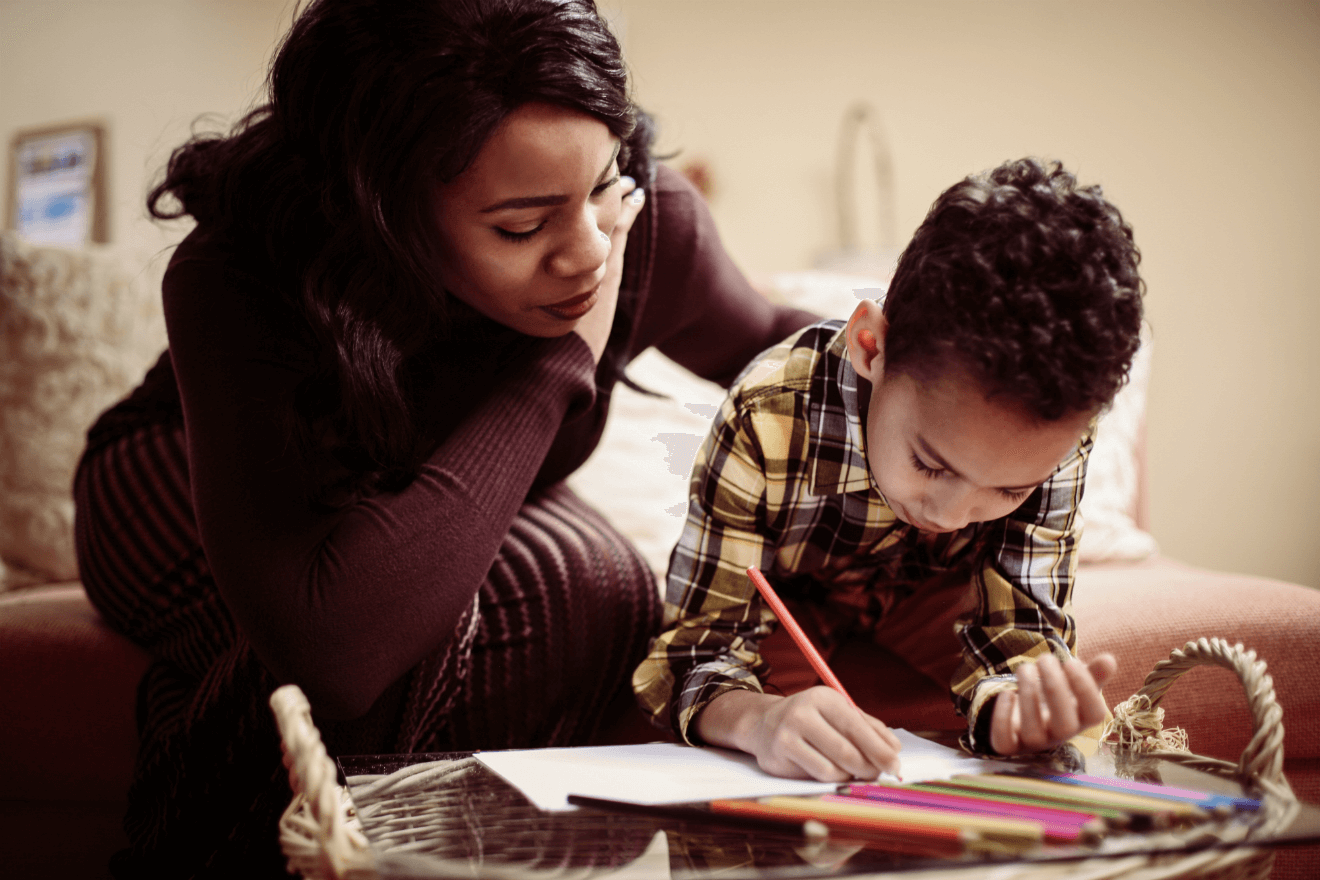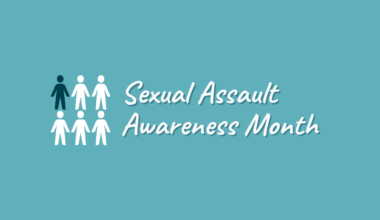Domestic violence is a serious, life-threatening form of abuse perpetuated by intimate partners. While men are more likely to perpetuate domestic violence, it’s important to remember that they can be victims, too; 29% of women and 10% of men in the United States have been raped, abused, or stalked by their partner, according to the National Domestic Violence Hotline.
Physical violence is the most visible form of domestic abuse, but the definition includes any attempt to control one’s intimate partner, including emotional abuse, manipulation, cyberstalking, blackmailing, or financial abuse. The ultimate aim of any abuser is to wrest control and independence from their significant other — so just because your partner isn’t outwardly violent doesn’t mean they’re not abusive.
When you’re in an abusive relationship, it can be difficult to recognize the signs. Many abusers are skilled manipulators, making it all too easy to dismiss their actions as rare, regrettable accidents. “Love bombing,” which involves overwhelming one’s partner with shows of affection and adoration — like sending enormous bouquets of flowers after a violent incident —is a common tactic. Abusers may promise to seek counseling, swear they’ll never hurt you again or cry and sob. Remember: just because they’re regretful doesn’t mean they’re not abusers.
Domestic Violence Warning Signs
If you suspect you, a friend, or a loved one is experiencing domestic violence, it’s important to get help as quickly as possible.
Here are some warning signs to look out for:
- Emotional abuse: Your partner may mock your interests and hobbies; demean, shame or insult you; or say that you’re worthless or incompetent.
- Jealousy: They might demand your phone or computer password, access to your financial records, prevent you from seeing your friends and family, or control what you wear and do.
- Stalking: They might track your phone, follow your car, or show up to your work or house when not wanted.
- Financial control: Your partner might take your money, demand control of a shared bank account, or unreasonably criticize your spending.
- Intimidation: They may enjoy frightening you or frequently stare at you in chilling ways.
- Sexual control: They might demand sex, even when you’re not interested; pressure you to participate in sexual activities outside of your comfort zone; or withhold sex to get what they want.
- Physical abuse: Your partner might hit you, injure you, or threaten you with knives, guns or other weapons.
Domestic violence can also include manipulating your children or holding your pets hostage. Whatever form abuse takes, it is important to act immediately: 15% of women and 4% of men have been physically hurt because of domestic violence.
Signs a Friend Is Experiencing Domestic Violence
When you’re not privy to the intimate details of a relationship, you may miss more obvious signs like physical abuse or financial control. Few abusers will do so in public, and those that are being abused may prefer to hide their distress in favor of saving face.
It’s important to know the subtler signs of domestic violence so you can help friends who’ve found themselves in a bad situation, before things get worse.
Here’s what you should keep an eye out for:
- Subtle jabs: While their partner may not all-out insult them in public, watch for less-obvious insults and criticisms. Do they get ribbed for minor mistakes? Is their partner always eyeing their food intake? These can be signs of emotional abuse.
- Walking on eggshells: Are they at ease around their partners, or are they always watching their words? Victims often believe they’re the reason for their partner’s anger — so they may temper their words to avoid setting them off.
- Constant excuses: When their partner skips to an event or shows up irritable, victims may quickly excuse their poor behavior. “He’s distracted by work or family problems,” or “She didn’t mean for you to take offense — she’s just bad with words.” Because they don’t want anyone to see the truth of their situation, they’re more inclined to lie.
- Possessiveness: While it might be blown off as a joke in public, keep an eye out for excessive possessiveness or jealousy. Do they act weird when their partner talks to a friend of the gender they’re attracted to? Do they encourage them to skip social events, or peer over their shoulder every time they get a text? These could all be signs of control.
- Constant bruises and injuries: Yes, people really do walk into door knobs or smack their shoulder on shelves —but every week? If your friend frequently has new bruises and uses the same tired excuses to explain them away, it’s time for a deeper look.
- Disappearing acts: Were they a constant presence before they got into a relationship —and now seeing them out and about is a rare sight indeed? While it’s not uncommon for new lovebirds to get wrapped up in a relationship, dropping off the map for months or years at a time might be a sign that their new partner is exerting excessive control.
- Personality changes: Watch out for withdrawal or new anxieties. Many victims hide their abuse from themselves, too — so they might instead react at an emotional level. If a friend is suddenly more withdrawn, consider asking about their relationship.
What to Do If You (Or a Friend) Are Being Abused
Admitting that your partner is a perpetrator of domestic violence can be scary. Abuse doesn’t eradicate love — and the idea of leaving them can be just as frightening as staying. Taking that first step is hard, and it’s okay if it takes you time to work up the courage. Gathering a go-bag can be a good first step. Fill it with important documents, like your passport, birth certificate and Social Security card, as well as cash and emergency supplies, such as toothpaste and a few changes of clothes. That way, once you decide to leave, you’ll be prepared.
One quick caveat: If you’re in immediate danger, call 911. Emergency responders can get you to safety quickly. Three women die every day because of domestic violence — so it’s important to recognize when leaving is essential.
Otherwise, consider calling with the National Domestic Violence Hotline (1-800-788-SAFE). They’ll direct you to local resources and women’s shelters who can help you make a clean break from your abusive partner. In addition, hotline workers will help you develop a safety plan, or steps that can keep you safe before you’re prepared to leave an abusive relationship, like teaching children how to reach out for help if you’re being abused and can’t do it yourself.
WomensLaw.org offers a number of resources for victims, including free legal advice. (Despite their name, their help isn’t limited to women —it’s open to all victims of abuse, no matter the gender.)
Unfortunately, if you suspect your friend is being abused, you can’t force them to seek help. All you can do is be a good friend. Listen when they’re willing to talk and let them know you’re always a resource if they do decide to leave.
Keep in mind, though, that they may be resistant to implications that their significant other is an abuser, so tread carefully. A good rule of thumb, is to match the language they use while talking about their experience. They may not be ready to use certain language — terms like abuse, rape, or manipulation — just yet, when referring to their current situation. As a friend, your main job is to let them know they have someone if they are ready to leave, but they often need to come to that conclusion on their own.
Whether you’re being abused, or have a friend who is being abused, a qualified and licensed mental health counselor can help you assess your options and work through the emotional difficulties that surround fraught relationships.
Additional Resources for Domestic Violence
National Domestic Violence Hotline
Find domestic violence shelters
Talkspace articles are written by experienced mental health-wellness contributors; they are grounded in scientific research and evidence-based practices. Articles are extensively reviewed by our team of clinical experts (therapists and psychiatrists of various specialties) to ensure content is accurate and on par with current industry standards.
Our goal at Talkspace is to provide the most up-to-date, valuable, and objective information on mental health-related topics in order to help readers make informed decisions.
Articles contain trusted third-party sources that are either directly linked to in the text or listed at the bottom to take readers directly to the source.




